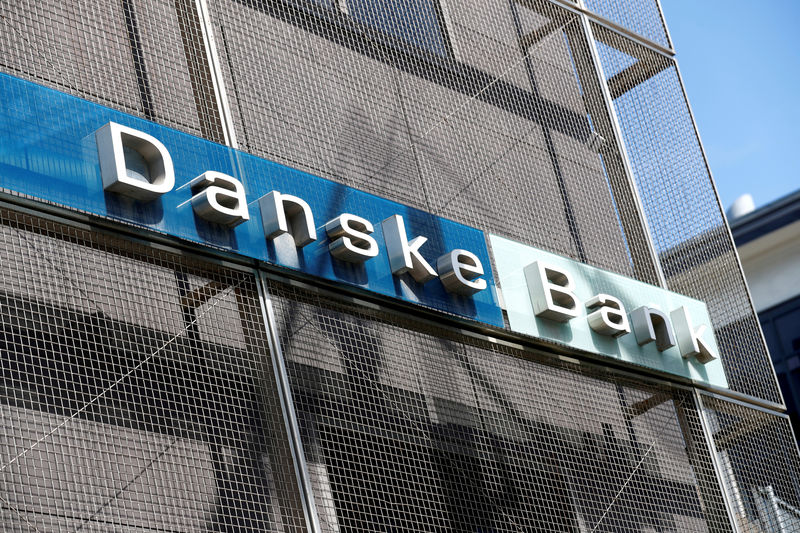 © Reuters. FILE PHOTO: Danske Bank sign is seen at the bank’s Estonian branch in Tallinn
© Reuters. FILE PHOTO: Danske Bank sign is seen at the bank’s Estonian branch in TallinnCOPENHAGEN (Reuters) – Money laundering problems in Denmark, where Danske Bank (CO:) is entangled in a scandal involving 200 billion euros ($228 billion) of suspicious flows, could affect financial stability, the central bank warned on Friday.
“Money laundering problems in a single bank could spread to the entire financial sector and could in turn affect financial stability,” the central bank said in a report.
Danske Bank is Denmark’s largest lender with a balance sheet 1-1/2 times higher than the country’s gross domestic product.
The central bank’s report on financial stability said “there is a need for coordinated effort between firms and authorities” to combat money laundering, calling for better European cooperation including a strengthening of cross-border supervisory cooperation.
Danske Bank is being investigated by authorities in several countries for money laundering and could face sizeable fines.
But the country’s largest banks all have sufficient capital to withstand a severe recession, a stress test by the central bank said on Friday without addressing the issue of potential fines for Danske Bank.
The central bank also said that a long period of low interest rates and accommodative financial conditions, “there is a basis for banks to assume greater risks when granting loans.”
($1 = 0.8781 euros)
Fusion Media or anyone involved with Fusion Media will not accept any liability for loss or damage as a result of reliance on the information including data, quotes, charts and buy/sell signals contained within this website. Please be fully informed regarding the risks and costs associated with trading the financial markets, it is one of the riskiest investment forms possible.
Source: Investing.com




























